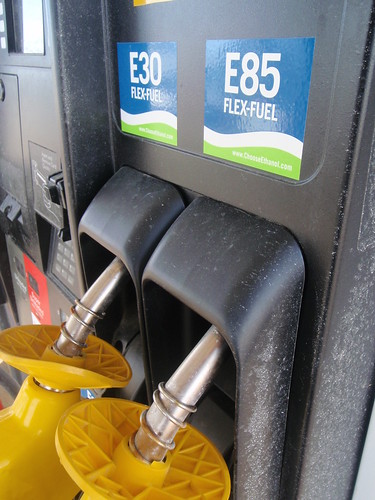Is ethanol really an alternative fuel?
Posted by Krzysztof Lis on November 18, 2011
In the vast amount of information about alternate energy, there a lot of sources of alternate energy that are really not as effective as they are promising to be. Some of these energy sources are much hyped and marketed because the interest in alternate energy is conducive for investor interest in the process. The hype can be a quick source of earning money for alternate energy fraudsters.
Therefore, although it is safe to invest money in established alternate energy solutions, especially solar panels, because the government is spending billions to foster their development, one should be careful before spending money and thought on miraculous alternate energy solutions like ethanol. A common notion that has been slowly gaining ground is that biofuels like ethanol can offer a long term solution to America’s fuel crisis and provide substantial returns to investors. This notion, although technically true, yet has several real life obstacles facing it before it turns into a successful alternative to gasoline.
First, and most important of all, the ethanol produced from corn actually costs more to produce than gasoline. Although, the federal government is presently providing tax cuts to encourage ethanol production and supply, yet there is no guarantee that the tax cuts will be continued in the future. The upswing in the use of ethanol as fuel to be produced from corn has already generated significant impact on the corn farmlands, thereby pushing up the cost of cattle feed and also the price of other animal products.
Although the ethanol manufacturers are making huge profits and ethanol investment is hot on wall street, yet the truth is that ethanol is an extremely costly fuel and even with the tax cuts it actually costs more to produce one gallon of ethanol than one gallon of gasoline. Moreover, transportation and storage of ethanol is also a significant issue. It can not be transported by pipelines as it binds with water. Because of that, storage is also a problem.
Last, but not least — in most cases, EROEI of ethanol production is very close to unity. It means that if you invest some energy in production of ethanol, you will get only about as much energy in ethanol, as you invested.
Leave a comment, and if you'd like your own picture to show up next to your comments, go get a gravatar!
